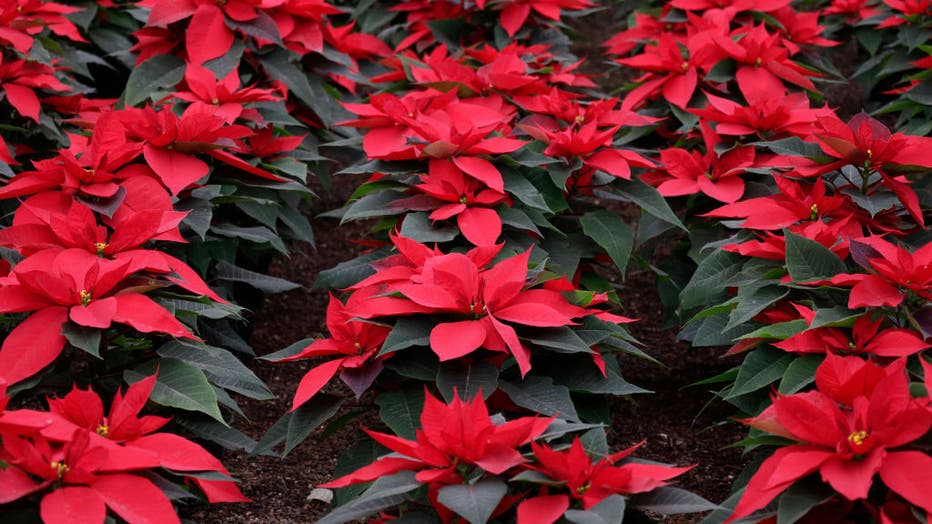Are poinsettias and mistletoe really dangerous?

Making the ultimate holiday mocktails
Carmel Berry is a 100% Woman-Owned business with a farmer focus. Their mission is to create delicious fresh pressed elderberry products that support their values; promoting health, supporting their local community and their farmers, and living sustainably. Katie Reneker, the CEO of Carmel Berry, joined LiveNOW from FOX to demonstrate how to make the ultimate holiday mocktails with their elderberry products.
Are holiday plants dangerous? What we know
Poinsettias: Are they really poisonous?
LOS ANGELES - Despite their long-standing reputation for being deadly, poinsettias are far less dangerous than many believe. According to Harvard Health and the CDC, this myth originated in 1919 when an unverified story claimed a child died after eating poinsettia leaves. Research, however, has debunked this claim:
A study in the American Journal of Emergency Medicine analyzed nearly 23,000 poinsettia exposure cases and found:
- 96% required no treatment.
- 92% showed no symptoms.
Pets may experience mild stomach upset, but severe reactions are rare.
To put it in perspective, a child would need to eat over 500 poinsettia leaves to experience significant symptoms, making the likelihood of harm extremely low.
Holly berries: The real holiday hazard
Unlike poinsettias, holly berries are more dangerous. The CDC warns that holly berries contain toxic saponins, which can cause symptoms such as:
- Abdominal pain
- Vomiting
- Diarrhea
- Drowsiness
Children are particularly vulnerable, as eating just five berries can lead to symptoms. Adults would need to consume 20–30 berries for similar effects. Keep holly decorations out of reach of both children and pets.

FILE - View of Christmas Eve flowers in a greenhouse.
Mistletoe: The facts behind the myth
Mistletoe, often called the "kissing plant," is less toxic than its reputation suggests. While symptoms like nausea and upset stomach can occur, eating a few berries or leaves is unlikely to cause severe illness. However, ingesting large quantities or consuming mistletoe-infused teas can result in more serious effects, such as:
- Gastrointestinal irritation
- Slow heart rate (bradycardia)
- Organ damage in rare cases
Why you should still keep holiday plants out of reach
While poinsettias, mistletoe, and holly are unlikely to cause serious harm, they still pose risks:
- Choking hazard: Berries can fall from these plants and become dangerous for small children and pets.
- Mild symptoms: Even in small doses, ingestion can cause nausea, vomiting, or mild irritation.
What you can do to stay safe this holiday season
Here are a few simple tips to enjoy holiday plants safely:
- Place plants like poinsettias, mistletoe, and holly where children and pets can’t reach them.
- Be mindful of fallen berries, which can become hidden hazards on the floor.
- Consider faux decorations as safer alternatives.
- If ingestion occurs, consult poison control, a pediatrician, or a veterinarian for guidance.
The Source: This article is based on information from Harvard Health Publishing, the CDC, and insights from Dr. Robert H. Shmerling. Additional details from the CDC’s December 2023 newsletter were used to provide context.

